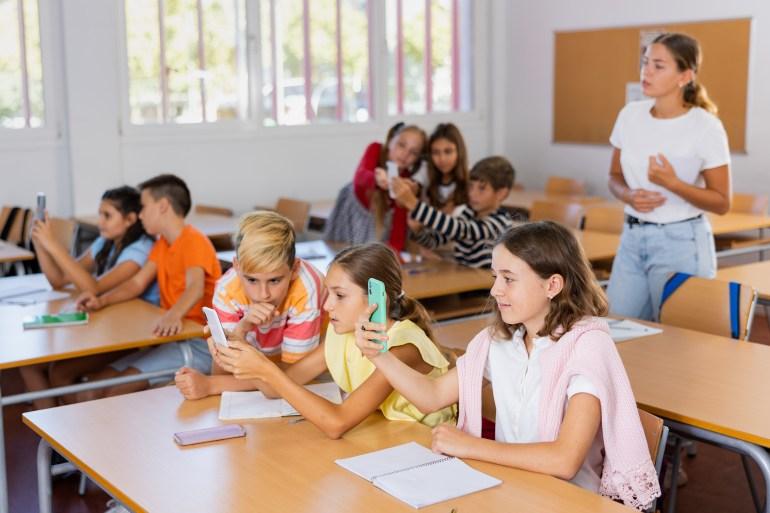A look at the growing trend of banning smartphones in US schools and the debate surrounding its effects on students.
Los Angeles has recently joined the list of US school districts, states, and cities implementing restrictions on smartphone usage in public schools. The Los Angeles Unified School District Board approved a resolution to ban student use of cellphones and social media platforms within 120 days. Similar initiatives have been taken by California, Ohio, Indiana, Oklahoma, and Florida to limit smartphone usage during school hours. Despite the growing concerns about the negative impact of smartphones on students' mental health, the effectiveness of such bans remains a topic of debate.
States like Ohio, Indiana, Oklahoma, and Florida have already enforced restrictions on smartphone use in public schools. Indiana's Senate Bill 185 prohibits students from using devices during teaching hours, while Ohio's House Bill 250 aims to reduce distractions by limiting smartphone use in classrooms. In contrast, Florida Governor Ron DeSantis highlights the importance of traditional education by imposing bans on smartphones and other wireless devices during teaching hours. These actions reflect a broader concern about the influence of social media and technology on students' well-being.
Experts emphasize the detrimental effects of excessive smartphone use on children's mental health. Research suggests a strong correlation between rising phone addiction and declining mental well-being among adolescents. The pervasive nature of smartphones in schools has raised alarms among educators and health professionals, leading to calls for stricter regulations. Some believe that banning smartphones in schools can help alleviate distractions and improve students' focus, while others argue for a more balanced approach that emphasizes responsible smartphone usage.
Despite differing opinions on the matter, the impact of banning smartphones in schools remains unclear. While some studies suggest a positive correlation between phone bans and academic performance, others highlight the challenges of enforcing such restrictions. The ongoing debate underscores the need for a comprehensive approach that addresses both the benefits and drawbacks of smartphone usage in educational settings.
In conclusion, the issue of banning smartphones in US schools is complex and multifaceted. As educators, policymakers, and parents navigate this evolving landscape, it is essential to consider the broader implications of smartphone use on students' well-being and academic success.
Source: ALJAZEERA
ALJAZEERA MEDIA NETWORK
